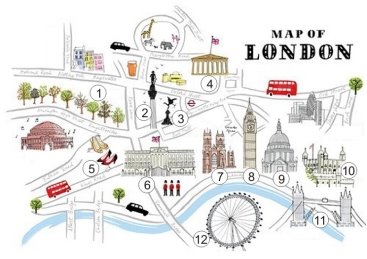Чайна церемонія "British traditions"
Розробка
позакласного заходу
з англійської мови
на тему
British traditions
Тема: British traditions
Мета:
- узагальнювати знання здобувачів освіти про британські традиції та звичаї, ознайомити з особливостями культури чаювання у Великій Британії, стимулювати пізнавальну діяльність, збагачувати світогляд;
- розвивати творчі здібності: навички виразного читання, акторські та ораторські здібності, знаходити та аналізувати інформацію з різних джерел, виділяти головне та другорядне;
- формувати інтерес до вивчення англійської мови з метою свого культурного зростання.
Форма проведення: чайна церемонія
Обладнання: два сервірованих столи, мультимедійний проектор, ілюстрації, презентація, роздатковий матеріал.
Література:
- Овсієнко А.П. Tea party / Овсієнко А.П. //Англійська мова та література. – 2011. - №13 (311). – с.33-38.
- Мальцева Н.П. Напої нації / Мальцева Н.П. // Англійська мова та література. –2013. - № 4(374). – с.32-33.
- Ресурси Інтернету.
Підготовчий етап
1.Збір навчальної інформації
2. Розподіл слів між учнями
3.Розробка презентації відповідно до теми
Структура позакласного заходу
І.Вступна частина ( 5 хв.)
1.Вступне слово вчителя
ІІ. Основна частина ( 30 хв.)
1.Гра «Mind up»
2. Інтерактивна вправа «London sightseeing»
3. Гра « Young poets»
4. Перегяд відео « Top 10 stranges traditions in Great Britain”
5.Декламування віршів
6.Інтерактивна вправа « Find your pair»
7.Історична довідка
8.Перегляд відеоролику про приготування English tea
9.Особливості чайної церемонії
10. Інтерактивна права «Fact»
11.Перегляд відеоролику про особливості чайного етикету
ІІІ. Заключна частина ( 10 хв.)
12. Заключне слово вчителя
Хід позакласного заходу
І.Вступна частина
1.Вступне слово вчителя:
Good afternoon. I am glad to see everybody. Today we’ve gathered together to speak about one of the most wonderful and richest countries – Great Britain . I hope it will be interesting for you to learn some facts about it.
ІІ.Основна частина
1.Гра «Mind-up»
1.Слово вчителя:
We knew a lot of information about Great Britain but now it is important to sum up our knowledge. You see the picture and you should tell us all possible words which can be connected with statement.

2.Інтерактивна вправа « London sightseeing»
Слово вчителя: Now it’s time to check how you know the map of London. Each of you goes to the map, chooses any landmark and places it on the map.

- Hyde Park
- Trafalgar Square
- Piccadilly circus
- British Museum
- Harrod’s
- Buckingham Palace
- Westminster Abbey
- Big Ben
- St. Paul’s Cathedral
10.Tower of London
11.Tower of Bridge
12. London Eye
I see that you know where the main landmarks are located. I would like to offer you the episode about London. Let’s watch and do some exercises.
3.Гра «Young poets»
Слово вчителя: Your task is to find the rhymes.
My favouritecolour is _____________(white),
My favourite number is ____________(five),
My favourite toy are the _____________(doll),
The plane, the long train and the _________(ball).
My favouritecolour is __________(red),
My favourite toy is my ______________(Ted),
Toy-animals are small and ____________(big),
Green, yellow and brown, and __________(pink).
- Перегяд відео « Top 10 stranges traditions in Great Britain”
Слово вчителя:
1.Why some of this traditions are strange?
2. Do you wont to follow any of it? Why ?
5.Декламування віршу учнями
1-й учень:
My copper kettle
Whistles merrily
And signals that
It is time for tea.
2- учень:
The fine china cups
Are filled with the brew.
There's lemon and sugar
And sweet cream, too.
3- учень:
But, best of all
There's friendship, between you and me.
As we lovingly share
Our afternoon tea.
6.Інтеактивна вправа «Find your pair»
Слово вчителя: I give you some biginings, endings of sentences you should combine them and explaine. At the end of yous ceremony you will get some presents.
If you are cold, tea will warm you;
If you are too heated, it will cool you;
If you are depressed, it will cheer you;
If you are exhausted, it will calm you.
7. Історична довідка
1-й учень: Traditional tea time in England is late afternoon, when world-famous 5 o’clock tea is served. Five o’clock tea is a ceremony, a work of art. It is not only about a perfect combination of the tablecloth, the napkins, the flowers, the vases and the tea set; it means a certain way of behaving and talking too.
2-й учень: Tea is one of the most popular drinks in the world. By the way, do you like it?
1- й учень:Despite the fact that tea drinking is considered English, the British were actually one of the last countries in Europe to try tea.
2-й учень: Tea first arrived in Britain in 1662 when King Charles II married the Portuguese princess, Catherine of Braganza.
1- й учень: And many years later tea drinking became still more popular, once again, thanks to the Royal Family. Afternoon tea was introduced in England by Anna, the seventh Duchess of Bedford, in the year 1840.
8.Перегляд відеоролику про приготування English tea
9.Особливості чайної церeмонії
1-учень: Afternoon tea, because it was usually taken in the late afternoon, is also called “low tea” because it was usually taken in a sitting room or withdrawing room where low tables were placed near sofas or chairs.
2-й учень: In England, the traditional time for tea was four o’clock and no one stayed after seven o’clock. Most tea rooms today serve tea from three to five o’clock.
3 – й учень: I will show you real English tea (учень демонструє процес заварювання чаю)
- Select a good quality brand tea.
- Boil the water.
- Warm the teapot with hot water first (fill it, and then drunk it out).
- Add one teaspoon for tea per cup plus one extra teaspoon for the pot.
- Pour boiling water and stir briefly. It is essential that the water is boiling, in order to release all the flavor of the tea.
- Wait! The tea needs time to develop its flavor, 3 or 5 minutes.
- Place the tea strainer over the top of the cup and pour the tea in.
- Add milk and sugar to taste.
- Enjoy your tea!
10. Гра «Fact»
Слово вчителя:
You should read sentences and translate them and tell us what have you found out.
- 59 million Britons drink every day from 120 to 165 million cups of tea.
- At one Briton, including babies and coffee lovers, we have about 3 cups of tea a day.
- 98 % of Britons drink tea with milk.
- 3 % of Britons prefer black tea.
- However, only 30 % of the tea lovers add sugar to the tea.
- The tea with sugar and lemon British call «Russian Tea» and almost do not drink it.
And one more: during drinking tea Englishmen speak only about pleasant things.
- The weather is great, isn’t it?
- Yes. It’s absolutely beautiful today.
- I wish it was like this more frequently.
- Me too.
- So what are you going to do this Saturday?
- I’m going to meet a friend of mine at the department store.
- Going to do a little shopping?
- Yes, I have to buy some presents for my parents.
- What’s the occasion?
- It’s their anniversary.
- That’s great. Do you need any help?
- Sure. Good idea!
10.Перегляд відеоролику про особливості чайного етикету
ІІІ. Заключна частина
Заключне слово вчителя:
To sum up, I’m sure such long lasting traditions unite people, make their life bright, happy and positive. People can overcome their difficulties easily. They join different generations together. In short, the more good traditions people have the more friendly they can be. And now we invite everybody to Tea drinking. You are welcomе.


про публікацію авторської розробки
Додати розробку
